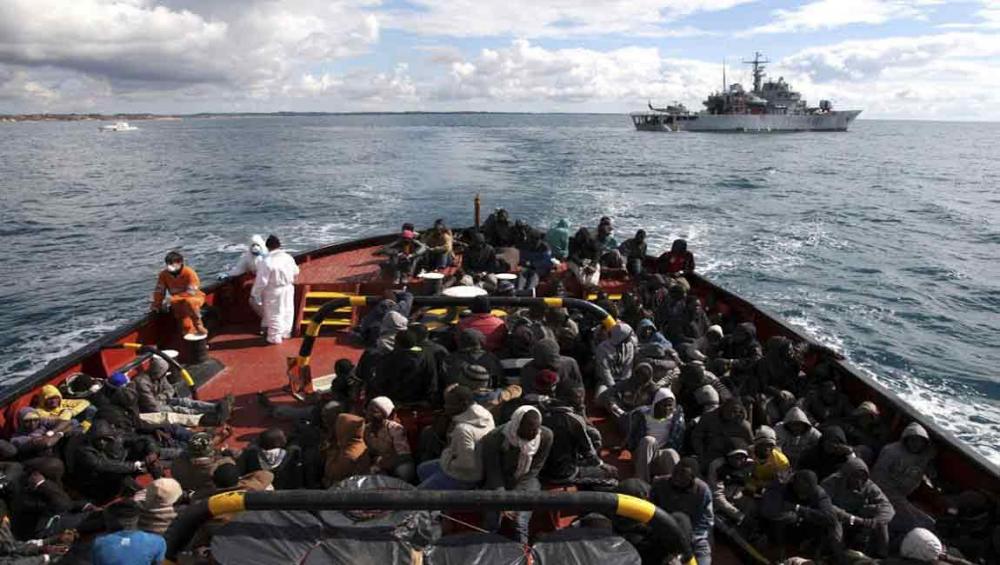Just Earth News 10 May 2017, 06:01 am Print

UNHCR/F. Malavolta (file)
“Rescue at sea operations, including by the Italian Coast Guard, in coordination with Frontex, and by [non-governmental organizations] are of crucial importance,” Cécile Pouilly, a spokesperson for the Office of the UN High Commissioner for Refugees (UNHCR), on Tuesday told journalists in Geneva.
A rubber dinghy sank on Friday night with an estimated 132 people on board. Pouilly said some 50 people were rescued and disembarked in Sicily on Sunday, but more than 80 people are feared dead.
More recently, seven people out of an estimated 170 were rescued from a shipwreck that took place on Sunday off the coast of Libya.
This brings the number of migrants and refugees killed while trying to cross the straits to at least 1,309 this year, according to the International Organization for Migration (IOM).
Meanwhile, some 49,310 migrants and refugees entered Europe by sea so far this year, IOM reported.The figure is lower than the 187,599 arrivals between 1 January and 7 May 2019.
The reason, according to IOM spokesperson Joel Millman, is the “strong drop” in traffic on the Turkey to Greece route following the Turkey-European Union deal reached in March.
Fleeing Libya
Most of the activity so far this year is from the Libya to Italy route, as well as to Spain.
Addressing the Security Council yesterday, the Prosecutor of the International Criminal Court (ICCC), said that the country lacks a rule of law and has become “a marketplace for the trafficking of human beings.” She warned of possible human rights abuses and violations of international humanitarian law.
Speaking from Rome on Tuesday, IOM’s Flavia Di Giacomo suggested that political prisoners were among those fleeing the country.
“Our field colleagues providing direct assistance at the harbours reported that many migrants bore signs of torture,” Di Giacomo said.
More shipwrecks expected
The two latest shipwrecks came amid favourable weather over the weekend and improved sea conditions. As the weather warms, more people are expected to launch.
The likelihood of shipwreck is increasing as smugglers put more and more people on boats, Pouilly said, and the quality of vessels is decreasing.
In cases of shipwrecks, finding survivors has become more difficult. People on smuggler boats are increasingly less likely to have a satellite phone – a trend that Pouilly said is confirmed by the Italian coast guard.
“Between 2015 and 2019 the availability of those phones had decreased by half, so people were much more difficult to locate when problems occurred and could not call for help,” she said. There are confirmed reports of armed gangs attacking migrants on the high seas between Libya and Italy to steal their mobile phones and boat engines.
Millman said the development is an indication that smugglers’ networks are starting to unravel: “The components that smugglers feel they need to conduct this business are getting harder and harder to come by in a place like Libya, and so that would account for some of the violence and some of the robbery.”
- Pakistan: Police recover two bullet-ridden bodies from Balochistan
- IDF strikes Hezbollah targets in Lebanon after projectile fire toward Northern Israel; 31 killed
- Pakistan: Armed gunmen kidnap 14 workers during coordinated raids in Balochistan
- ISIS-inspired plot foiled in UK: Two men get life sentences for targeting Jewish community
- India rejects allegations, urges Pakistan to tackle its ‘home-grown ills’





-1763561110.jpg)
